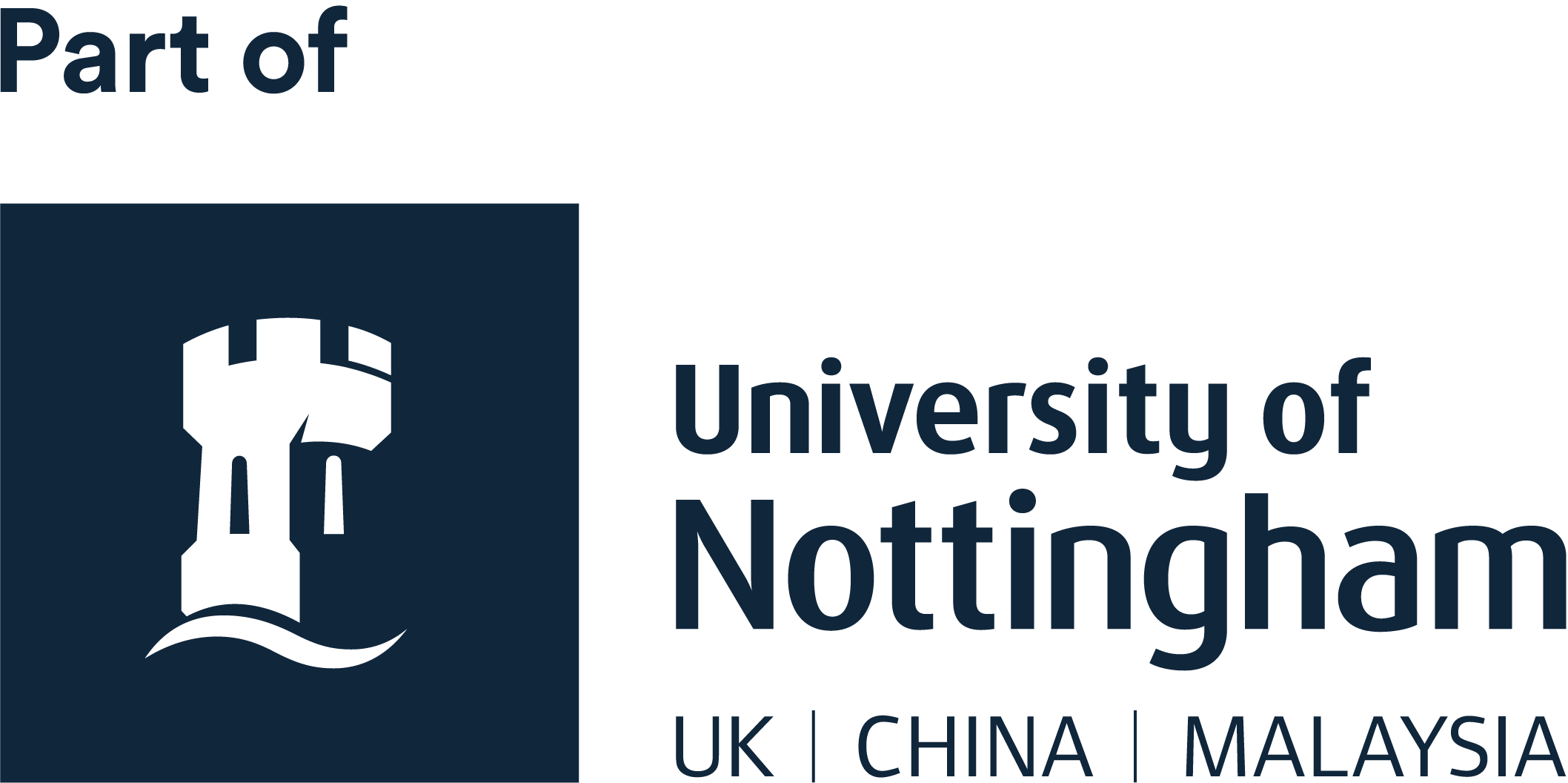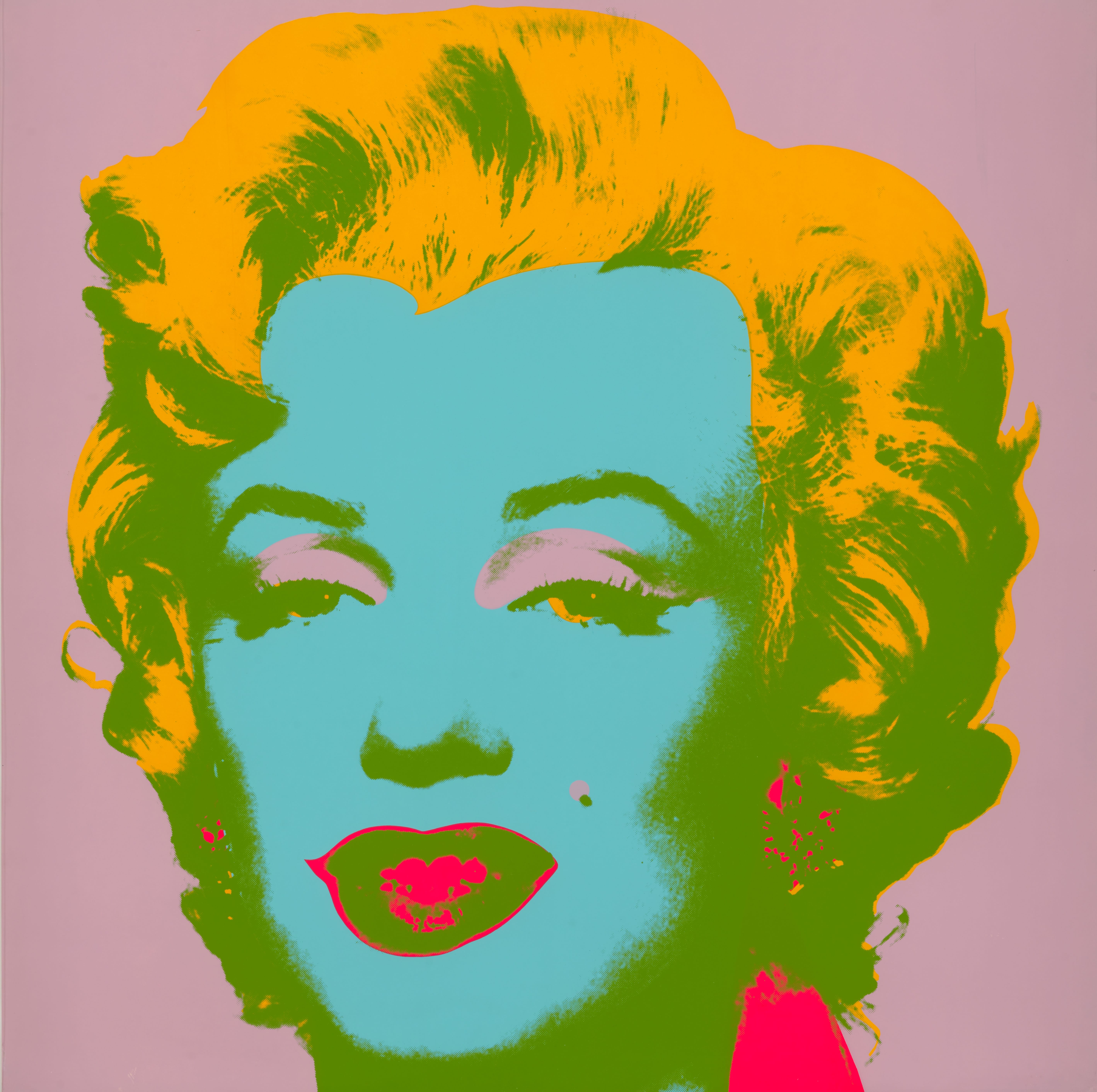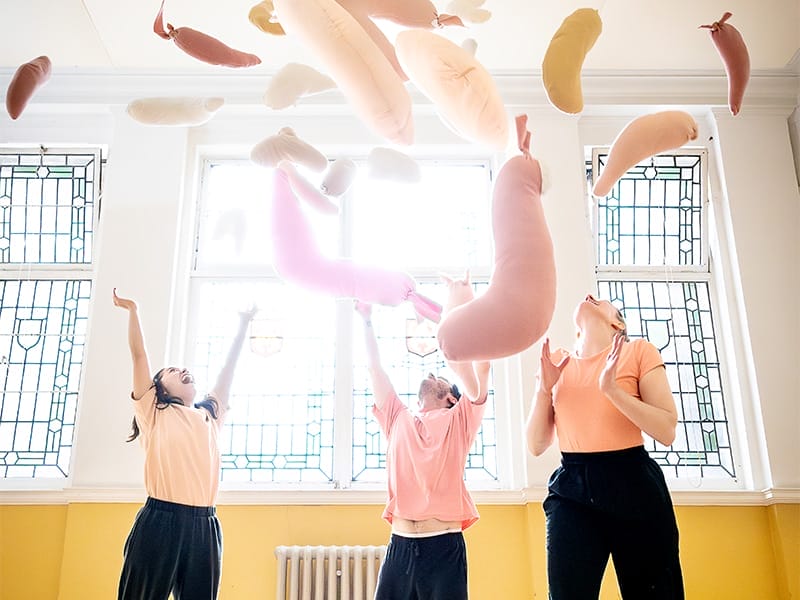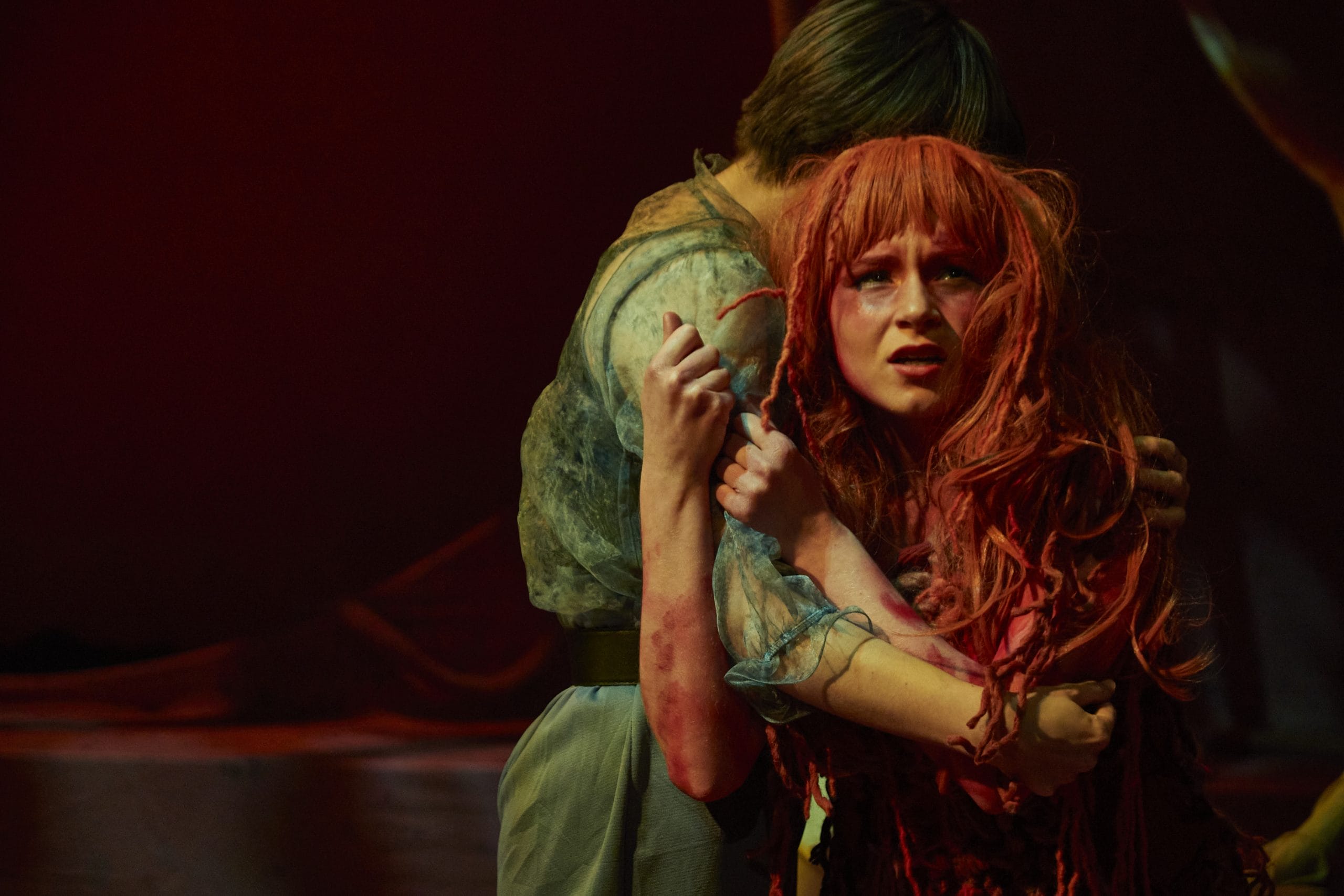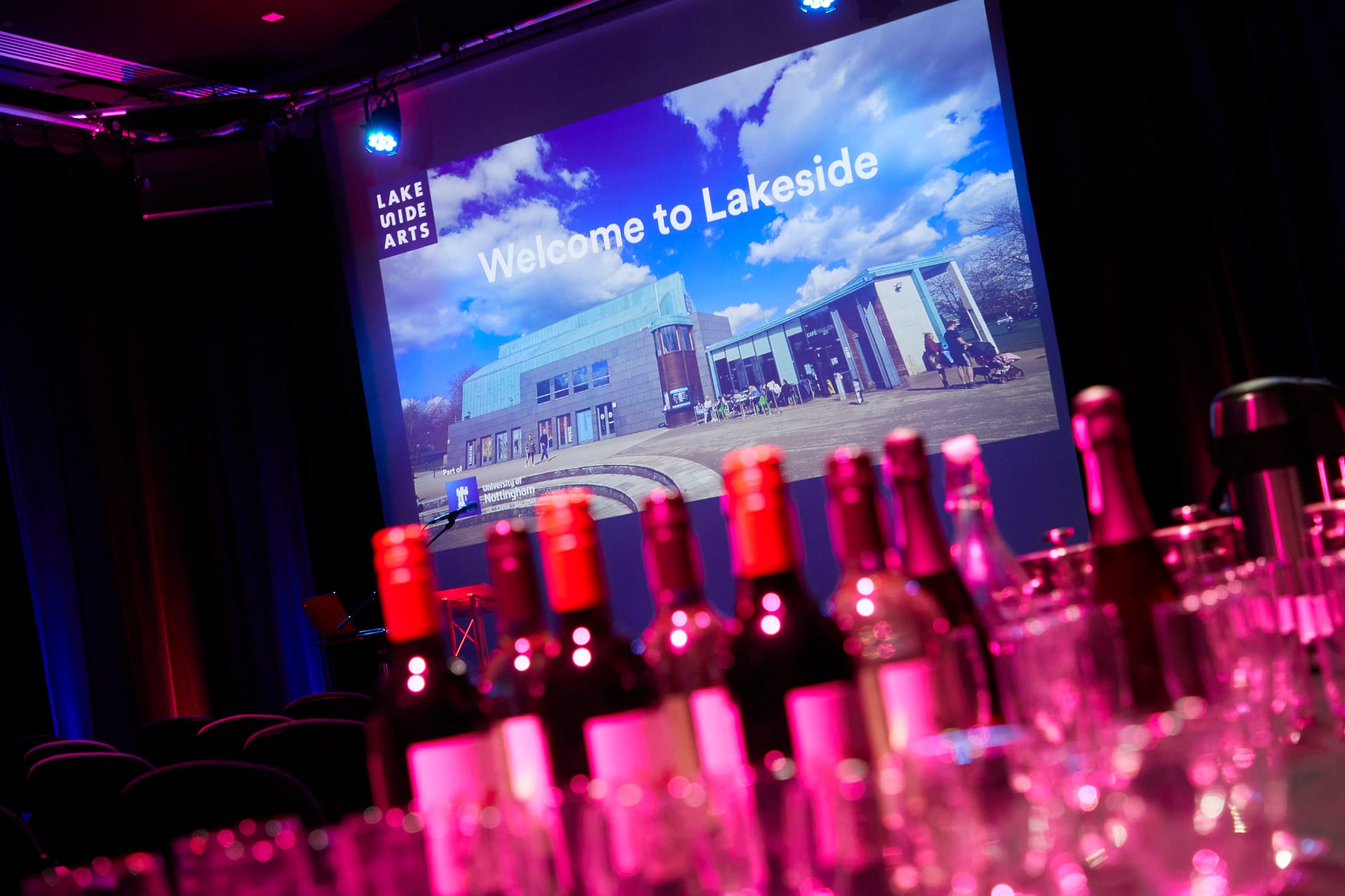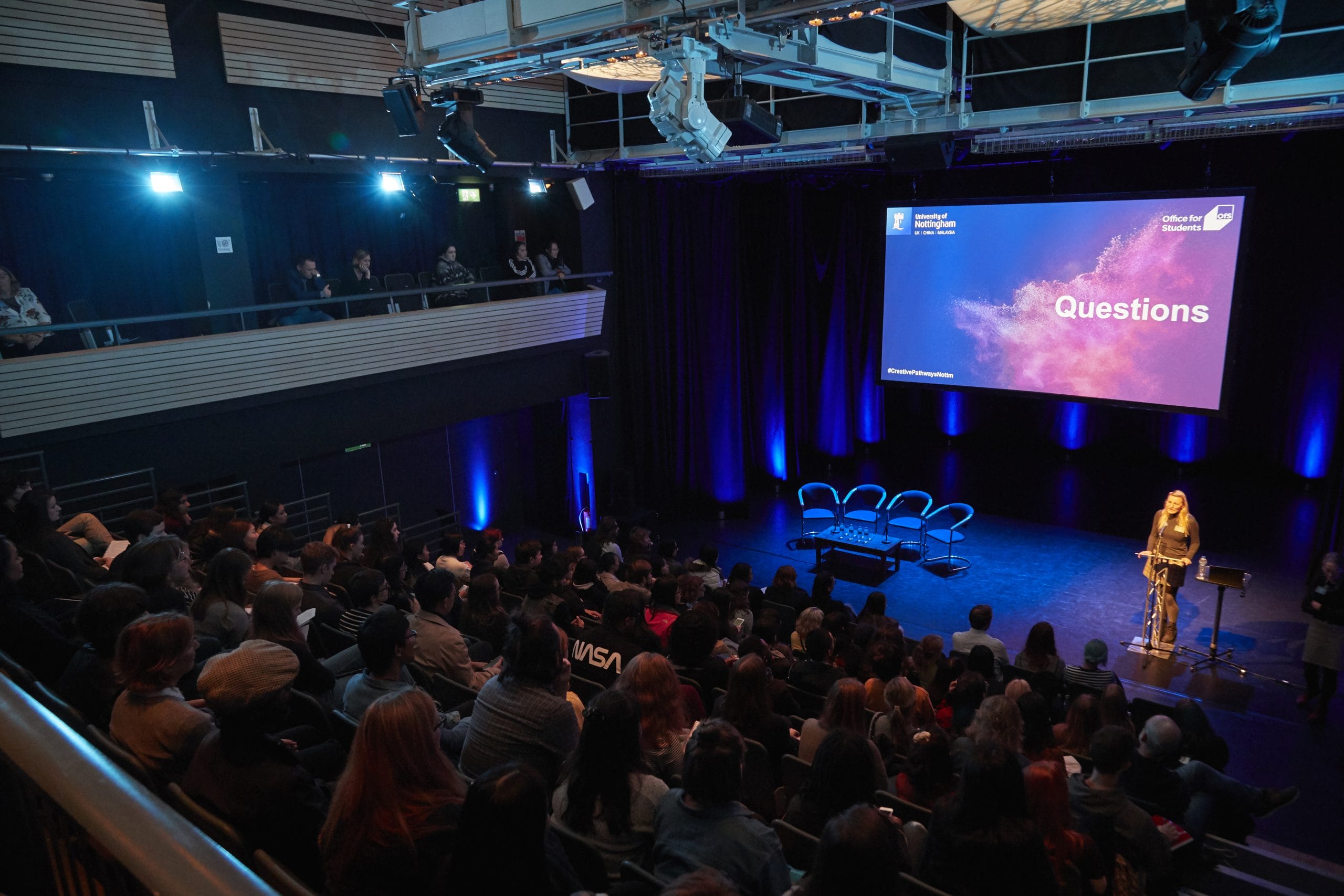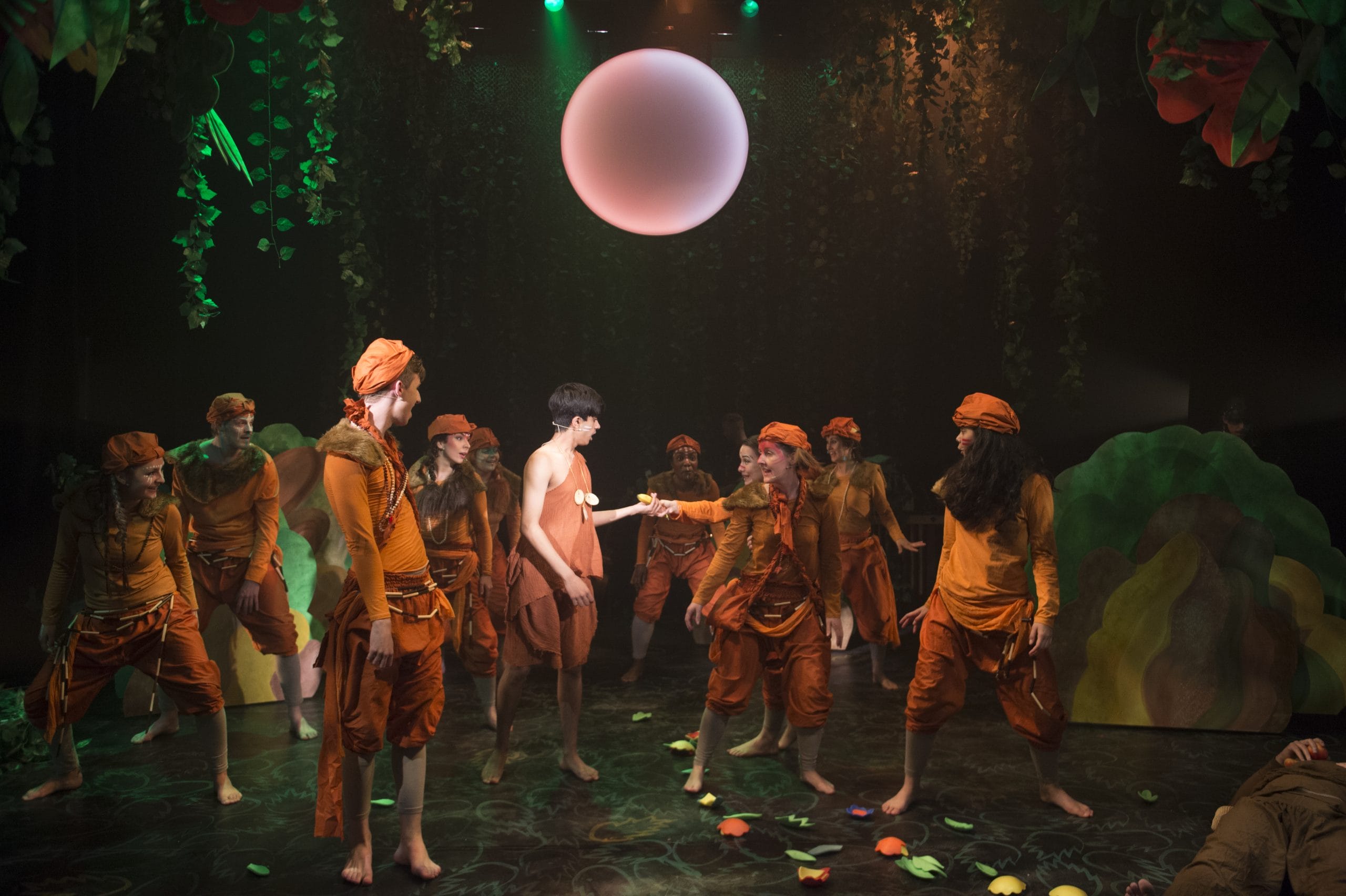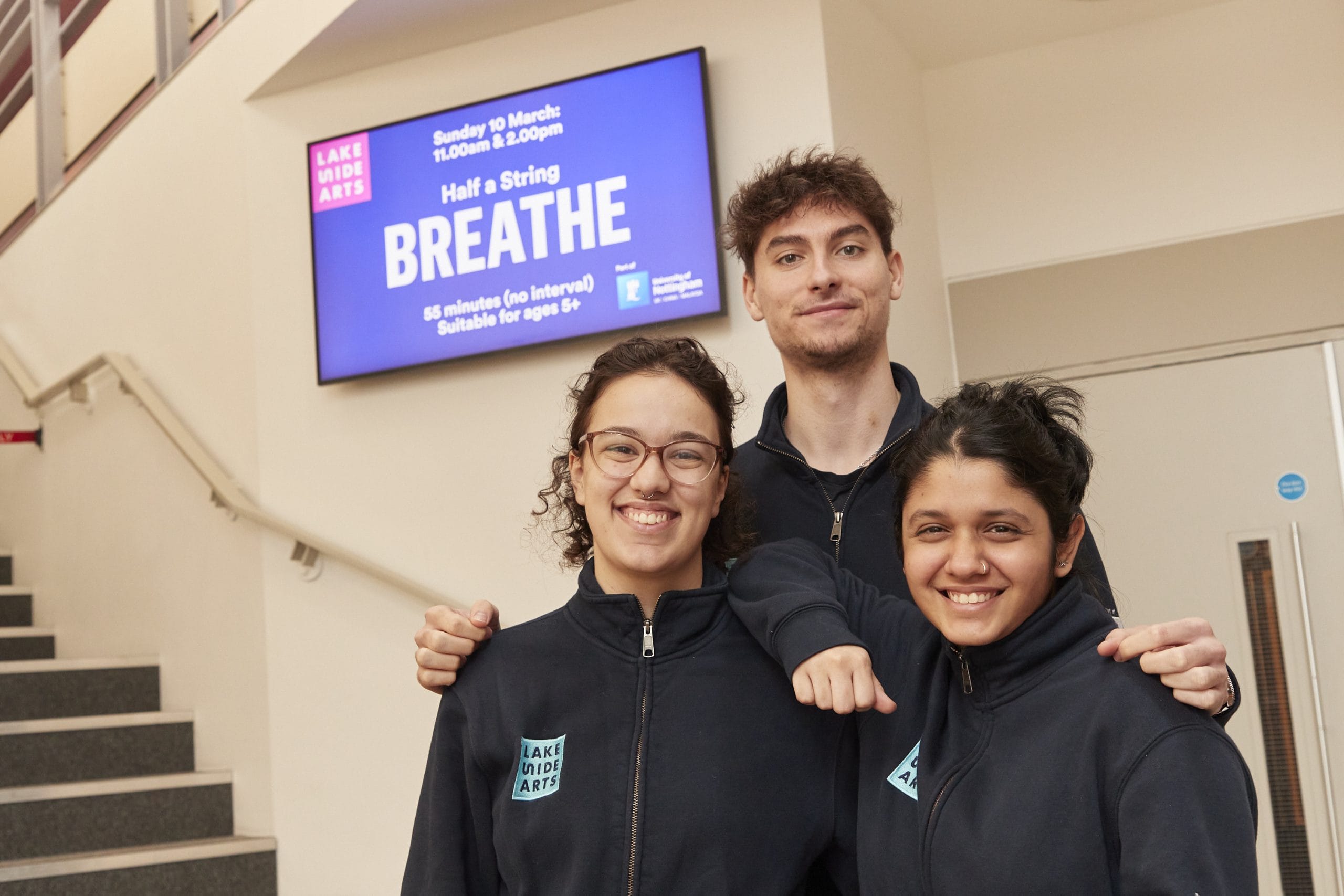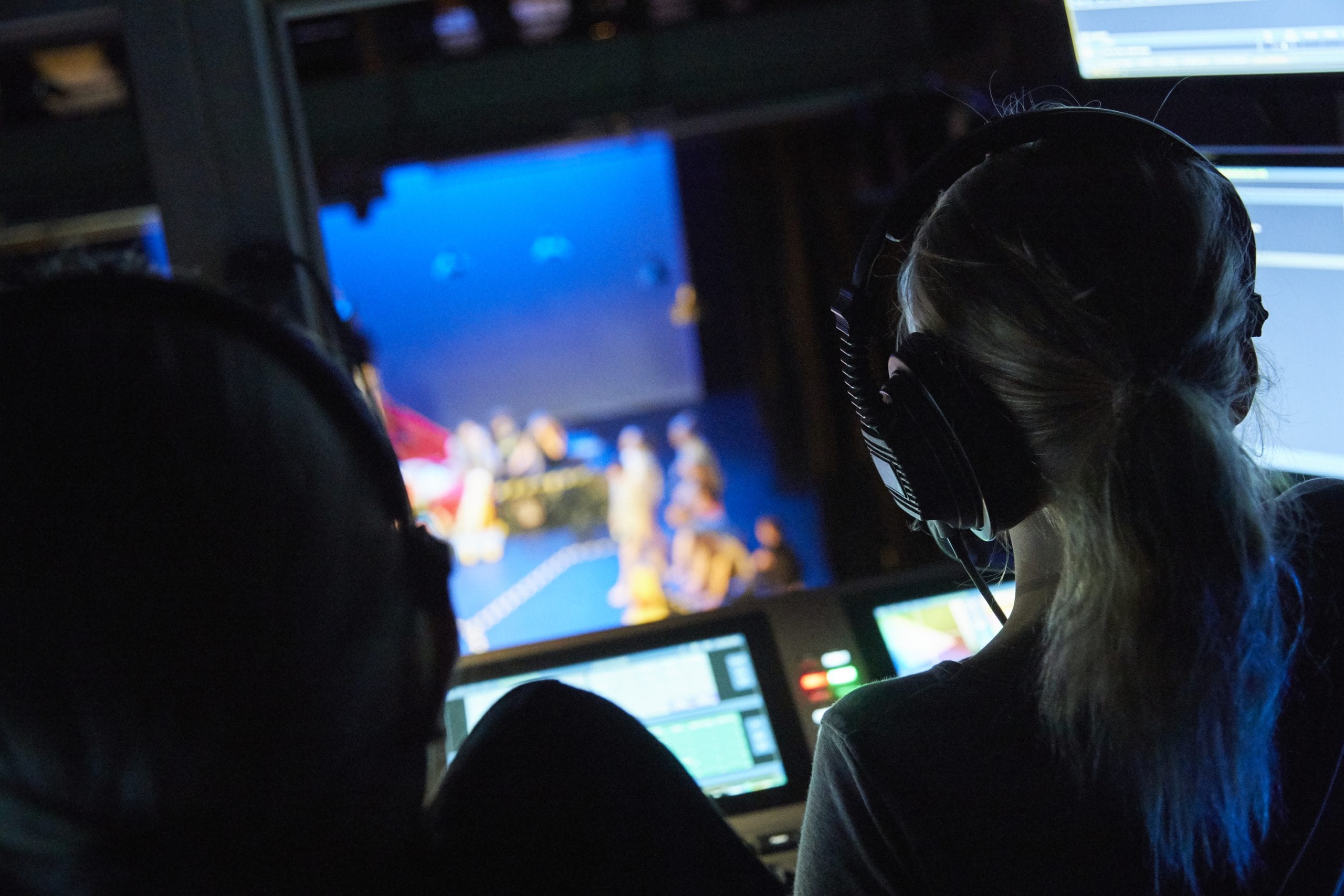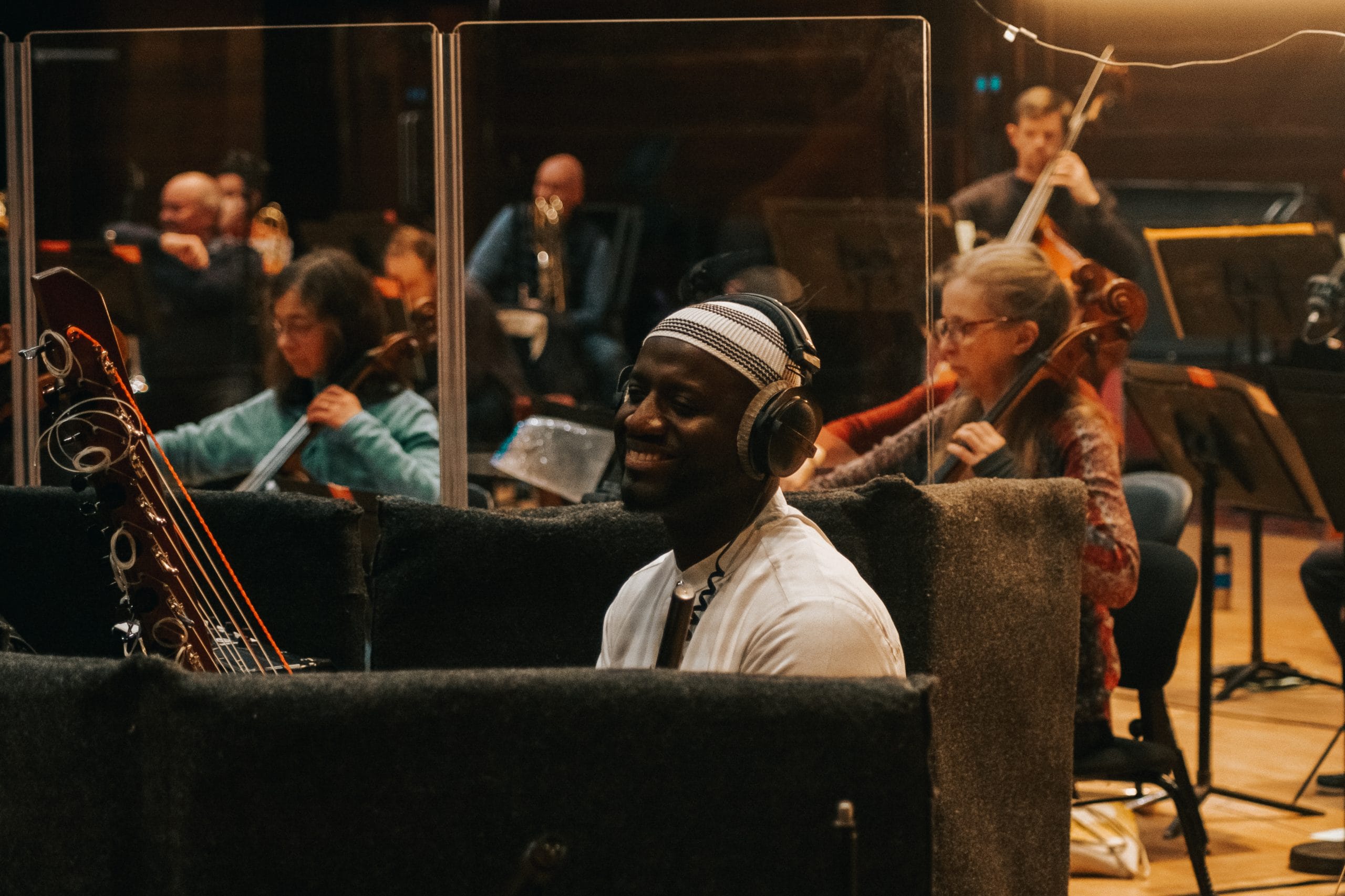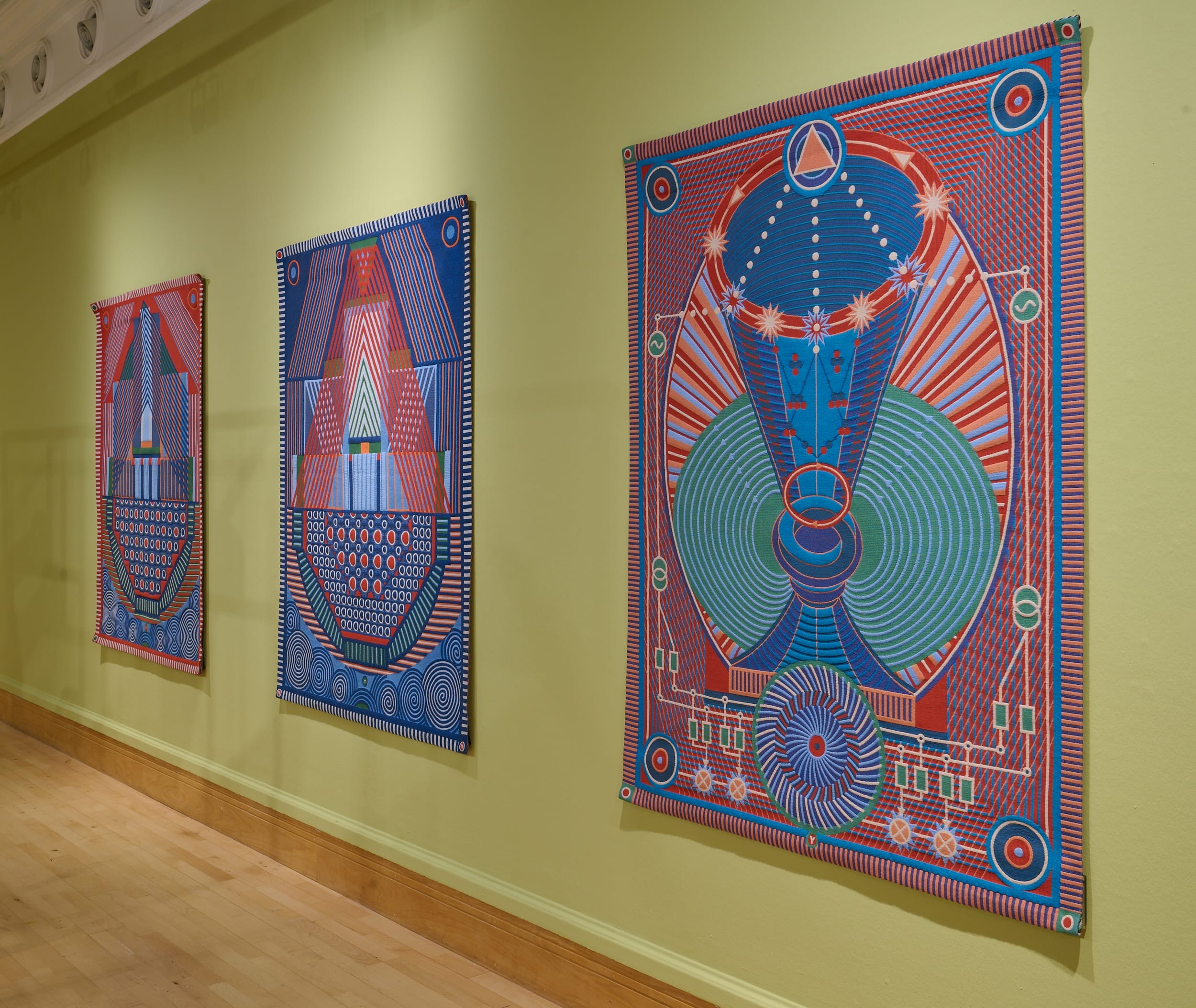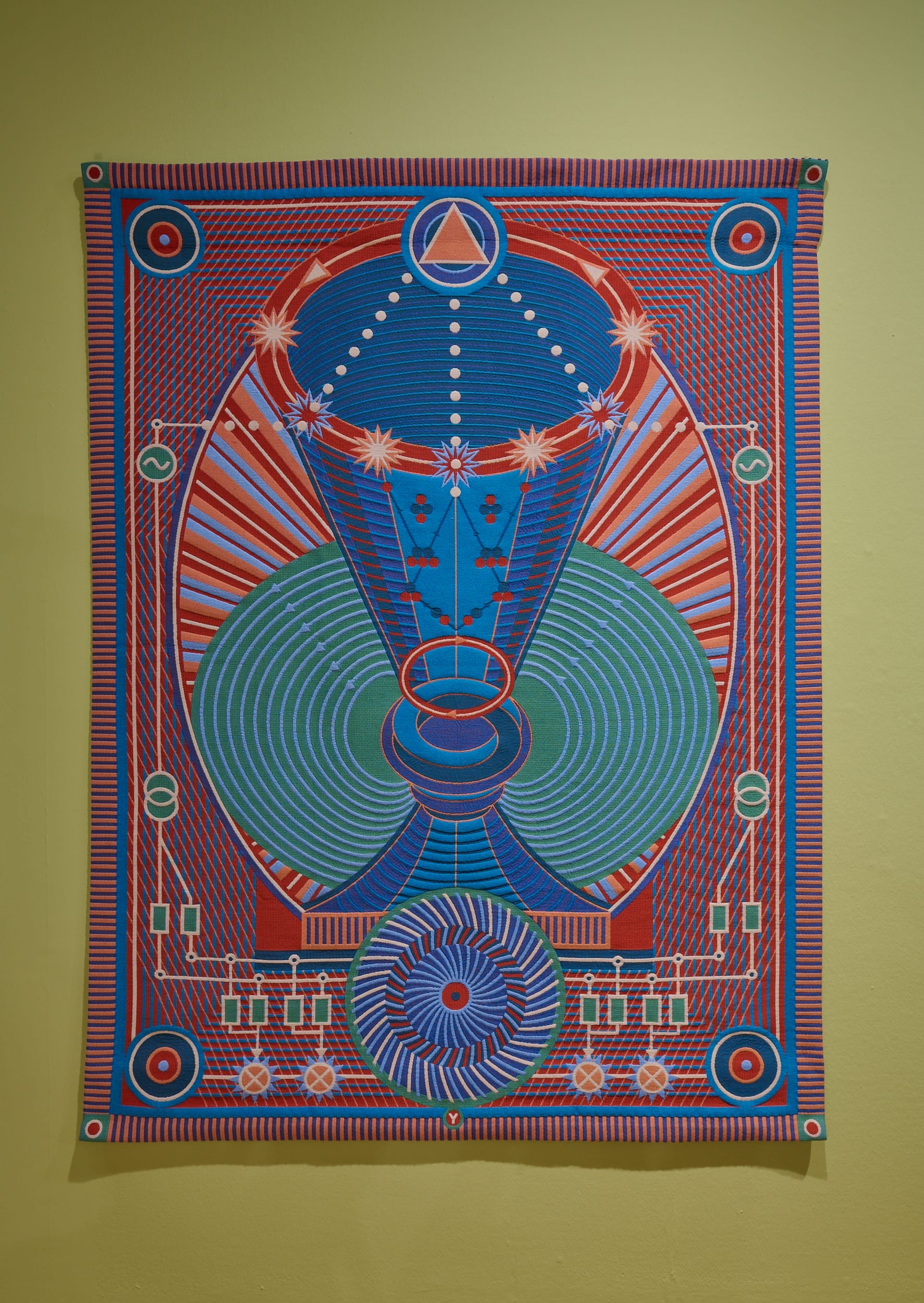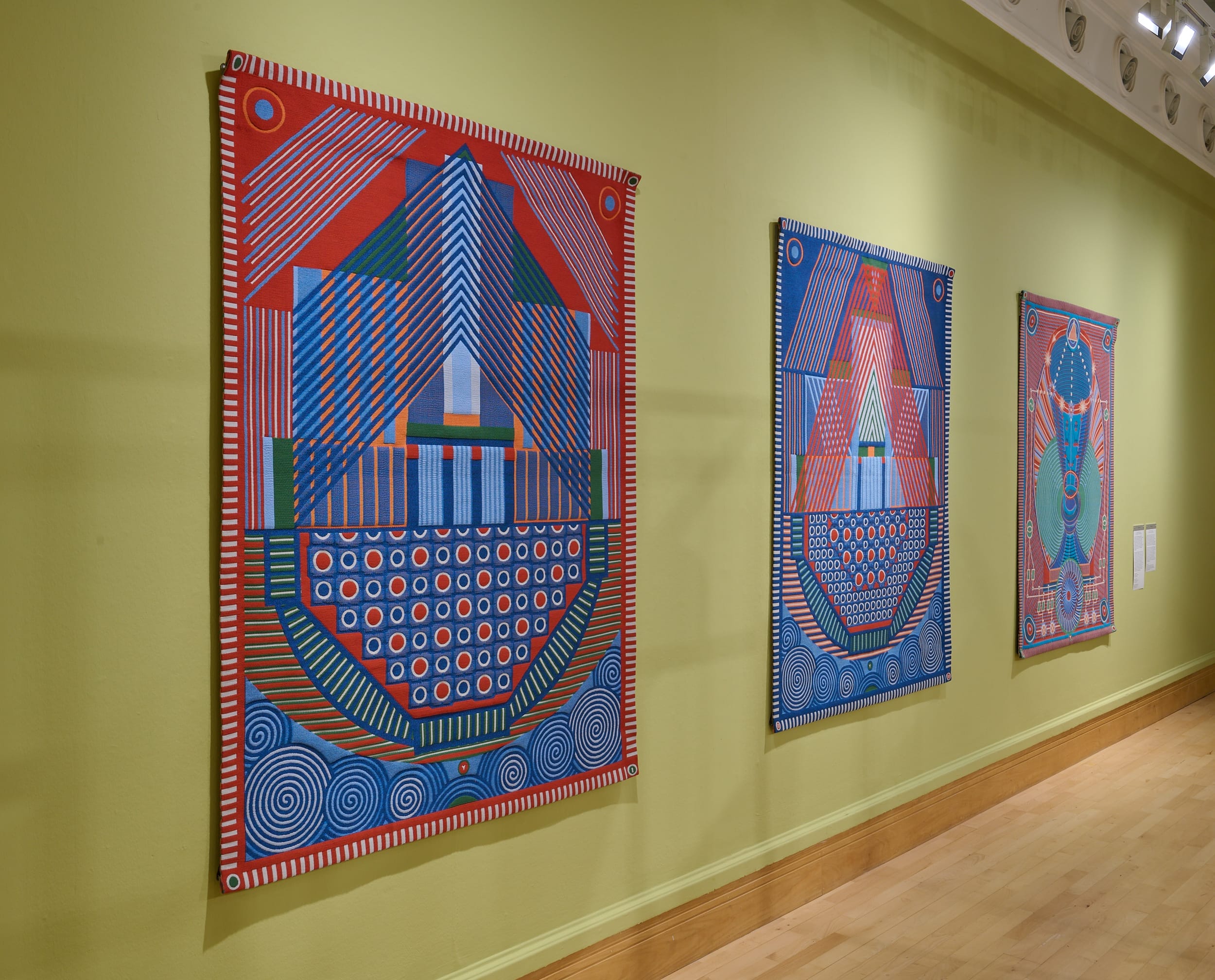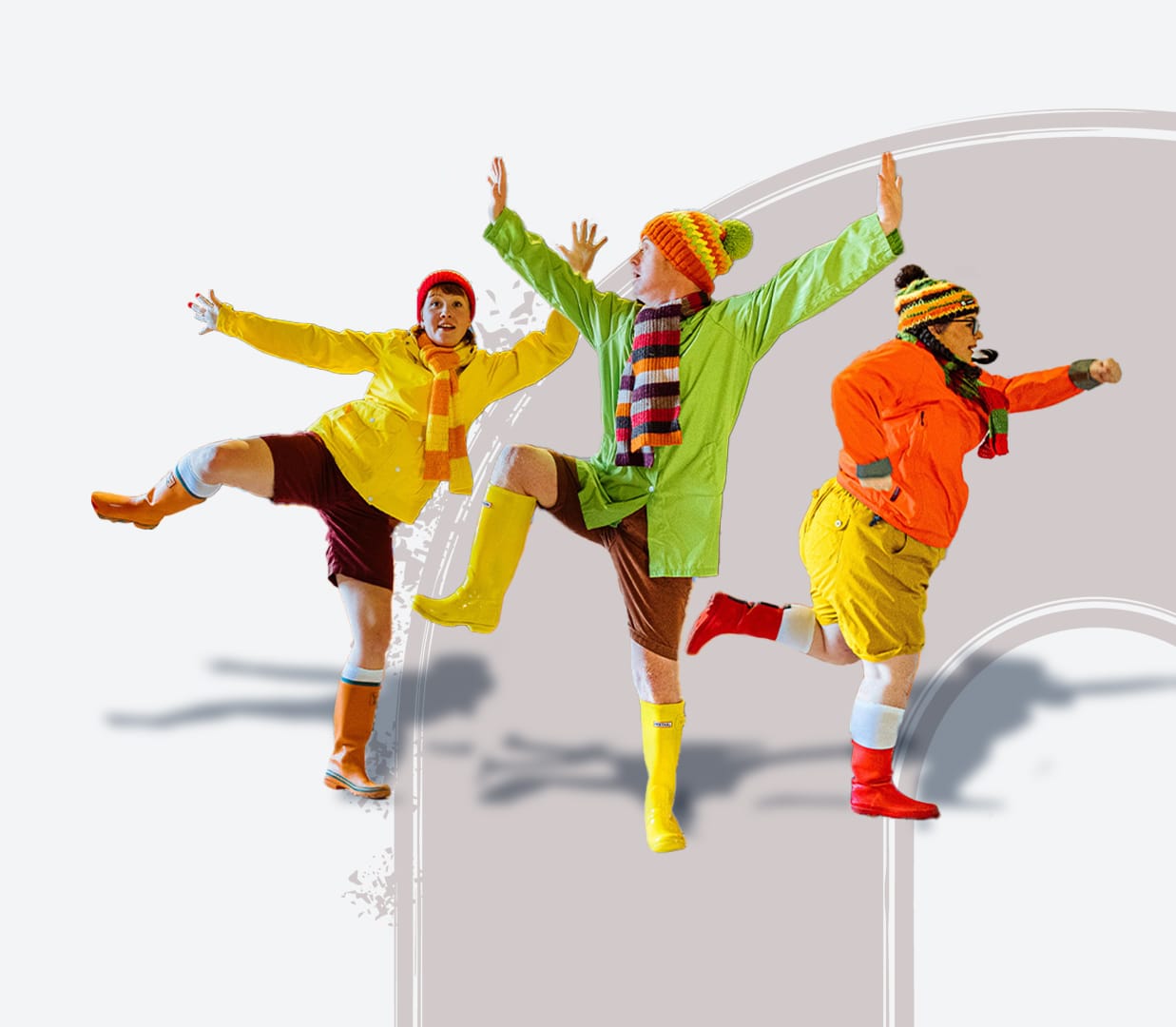Nottingham’s resident artist, Yelena Popova, has firmly placed the county on the international art map with her striking geometric tapestries, which explore the enduring legacy of nuclear energy.
Material Worlds: Contemporary Artists and Textiles is a free group exhibition featuring radical and exciting contemporary artists using textiles to explore ideas of the body, identity, gender, race, heritage, myth and folklore. The potential of textiles as an art form has been pushed to extraordinary limits creating works that are theatrical, bold, unsettling and humorous.
Popova’s journey into the art world began at the Moscow Art Theatre School (MHAT) and continued at the Royal College of Art, where she earned an MA in Painting with distinction in 2011. Since then, she has seen significant success, not only locally, with her works now comprising part of the Nottingham Castle’s Permanent Collection, but globally, with exhibitions in Berlin, Los Angeles, New York, and at the Saatchi Gallery. She was selected for ‘Bloomberg New Contemporaries’ and in 2014 was selected to be part of Thames and Hudson’s new publication ‘100 Painters of Tomorrow.‘
Her multidisciplinary practice spans painting, textiles, video, and installation. Popova discovered the expressive potential of tapestries during her residency at Girton College, Cambridge, using the medium to expand on the relationship between surface and image that characterises her paintings.
A common thread in Popova’s work is her interest in duality; social, political, and material. Her practice has previously explored themes such as utopian idealism, industrial progress, digital saturation, and art ownership. Her recent tapestries focus particularly on the social and physical aftereffects of nuclear energy.
Although Popova has been based in the UK for over twenty years, she grew up in Ozyorsk, USSR, part of a network of towns built to house the workforce developing nuclear energy and defence during the Cold War. Due to the necessity of maintaining secrecy, it was closed off to the outside world. “It took me a long time to come to terms with how strange this fact of my biography was because I had grown up there and it all seemed normal,” she reflects.
This personal history underpins much of her work. After visiting decommissioned UK nuclear sites such as Sizewell and Dungeness, Popova became drawn to the lingering legacy of Magnox reactors, particularly their graphite cores, which cannot be dismantled for nearly a century due to the risk of continued radioactive contamination. Her work aimed to be a warning against the historical and future repercussions of fission and fusion. These sites became symbolic in her work—monuments to past progress and future risk.
Her work draws on the aesthetics of Russian constructivism, minimalism and spiritual abstraction:
Before adopting the woven tapestry, Popova started by designing mausoleums, conceptual tombs for these decommissioned industrial titans. She also collated soil and stone samples from the sites; “geological fingerprint of the locations”, which were then used to create a series of paintings and display structures. She eventually landed on tapestries as an effective medium that could embody the tension between progress and disintegration. The tapestries were made with a mechanised Jacquard loom that was programmed to translate her digital illustrator designs onto fabric. This produced the hypnotic, multi-layered, transparent effect that appears to deepen and morph as the viewer looks further.
The three tapestries, Keep Safe I (2020), Keep Safe II (2020), and Promethean Chalice (2020), involve a complex interweaving of mathematical geometric patterns. These shapes interpose in varying shades and directions, creating this hypnotic, blurred effect. Amid these shifting forms, echoes of atomic cores, vortexes, chalices, celestial maps, and architectural structures emerge. At the centre of Promethean Chalice, myth and science collide, invoking both the destructive power and the seductive promise of technological advancement. This effect not only conveys a message about the necessity for sustainable and safe energy production, but also aims to cause slow deliberation. “We’re used to a very high speed of looking these days, so the paintings [and tapestries] I’ve made recently are interested in complicating that and making you look at them from lots of different angles and positions. They change, so parts of the image can fade or surface when you move. You have to be there with the work, slow down, and look more carefully than usual.”
Through meditative process and layered symbolism, Yelena Popova invites us to pause, to reckon with the past, question our future, and reconsider how we see and what we value.
The Material Worlds exhibition is open to visit until 31st August 2025 at the Djanogly Gallery, Lakeside Arts. Find more details here.
